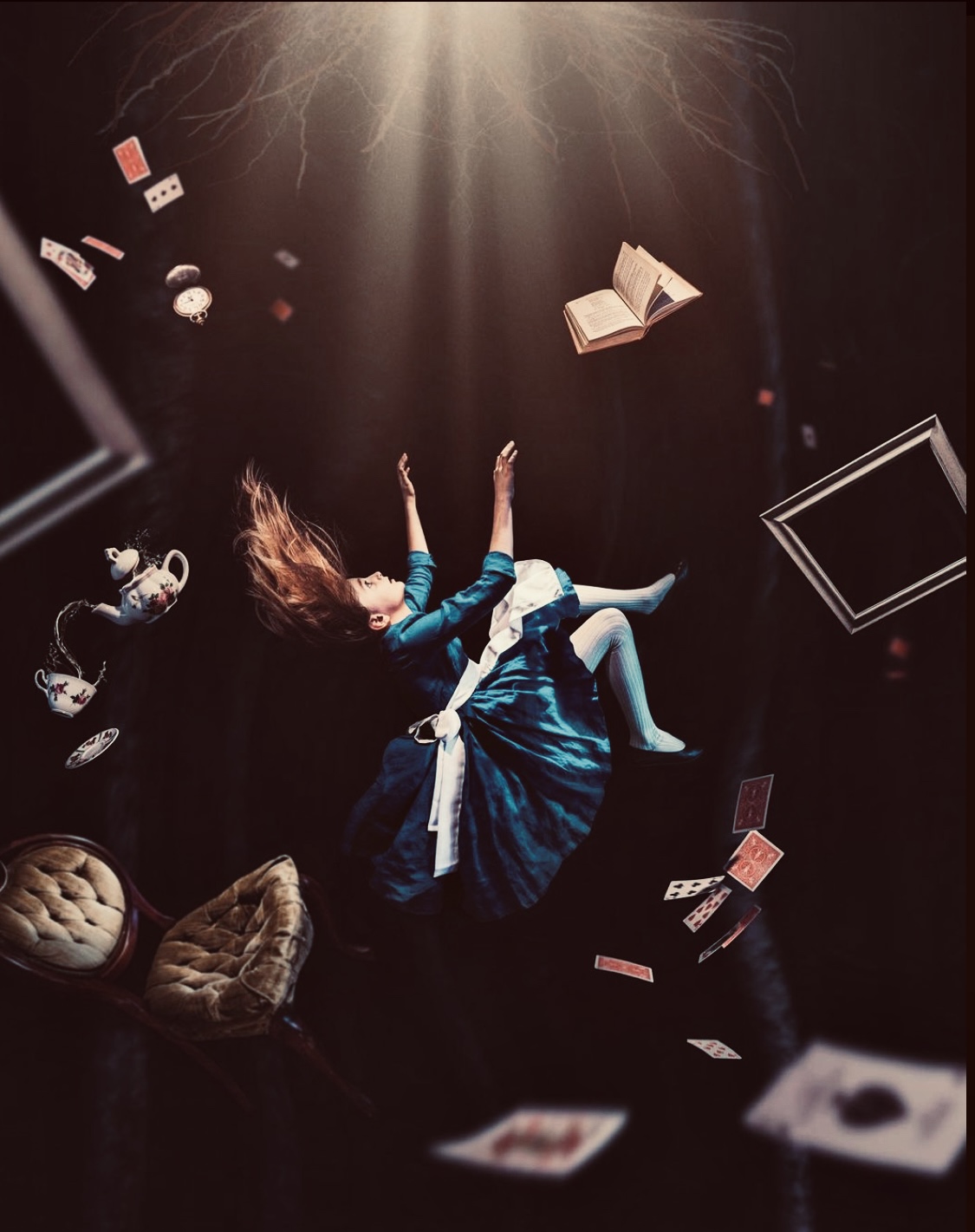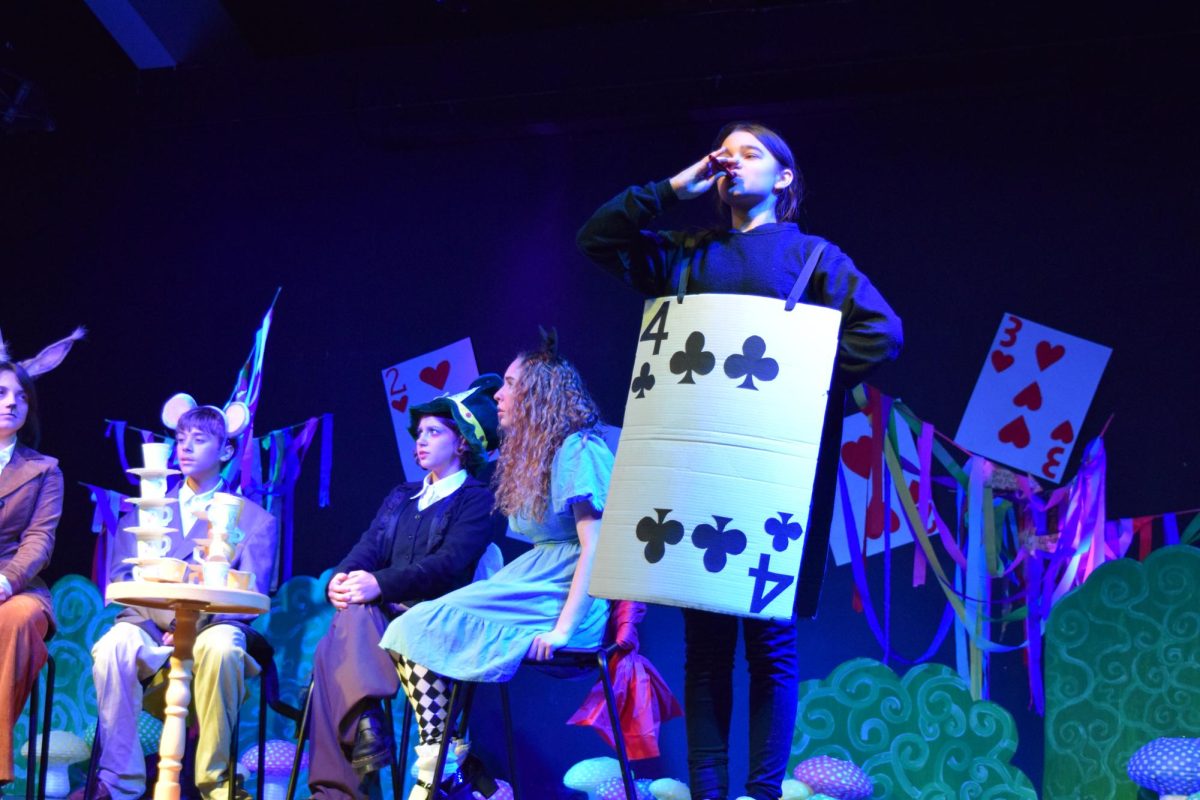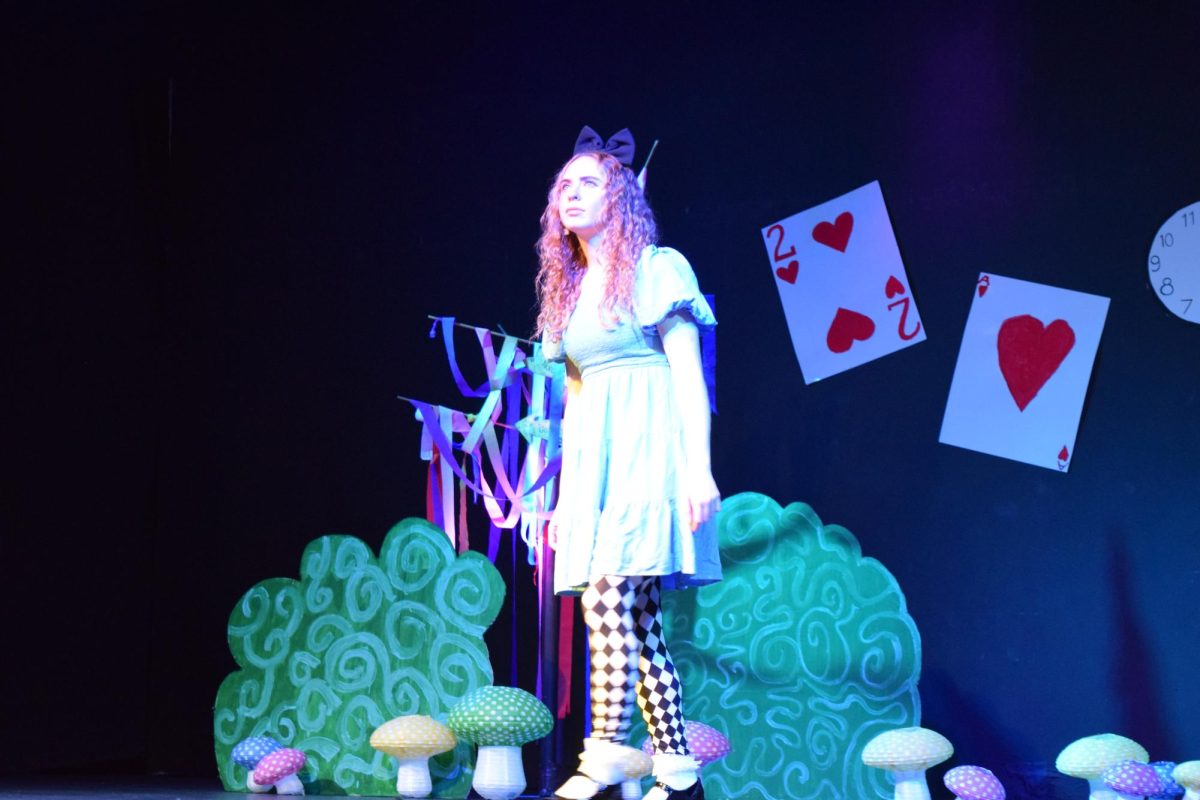How much skill is required to go out onstage in front of hundreds of people? What does it feel like to be strategically dressed in an imaginative, constructed world on theater grounds? How much courage is needed to deliver emotionally-drawn performances? All of these questions have one thing in common: what does it take to be an actor/actress?
As an actress, I can assure you of one thing: while the road to acting may seem like an arduous endeavor, it is one with gratifying benefits! Acting tests your integrity and your passion. It shapes you in a whole new light, giving you the confidence to express yourself. For me, acting became a greater accomplishment than I ever thought it could be: I proved to my younger self how capable and valuable I am. Little Raquel would be astonished if she knew she took on her second starring role in high school playing Alice in “Alice in Wonderland: Down the Rabbit Hole.” My younger self would be astounded if she knew she developed a new perspective on her life—one that emotionally connects her to acting after going down a rabbit hole of effort to gain self-worth in the process—one from Alice’s perspective.
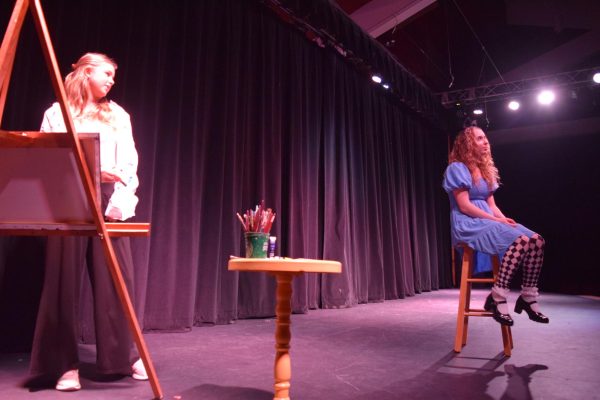
If acting and the process of what it takes to be an actor/actress interests you, this article is just for you! Travel down this article as I detail the process and my theater experience.
Auditions
The audition process can be the most anticipated part when it comes to theater. After the chosen play or musical is announced, the first thing you must do is decide what role you want to audition for. When it comes to choosing a character, pick a character you can connect with and bring to life. When I auditioned for Alice, I had to embody a sense of her character: a stubborn, curious little girl. Being naturally bright-minded like Alice, I used the given script for my audition of her to captivate the wonder-like nature of her character. Auditions give your director(s) an idea of your capabilities to act and get to know you in the process. Auditions also help to determine for director(s) what role would be best suited for you, especially if it’s your first audition.
So, what is the difference between plays and musicals? Plays are theatrical performances that involve several lines spoken by characters detailing the events of a story. On the other hand, musicals consist of not only spoken lines but singing, dancing, and a musical soundtrack. Both plays and musicals are commonly adapted from films and books.
Depending on whether you audition for a play or musical, you will be asked to read lines provided to you by the directors, perform a song (generally pick a song that reflects the character you are going out for), or learn a segment of a pre-choreographed dance in the production. These key tasks allow your director(s) to observe your abilities to perform.
Both plays and musicals range in the number of roles available. While some consist of only a few main roles, others involve a larger cast. There are three distinct categories of roles to take part in:
- The ensemble: These roles consist of additional actors that bring the show to life as background characters, like the solitaire cards in “Alice in Wonderland: Down the Rabbit Hole.”
- Supporting roles: these roles are adjacent to the lead roles; they help build the plot of the story with the leads. For “Alice in Wonderland: Down the Rabbit Hole,” a spectacular supporting role is the Caterpillar.
- Lead roles: These are the roles that carry the play as the heads of the show; an example is Alice.
Remember: the cast stands as one unit! Whether it consists of actors, musicians, singers, or all of the following, the whole cast is the foundation of a theater production!
Casting
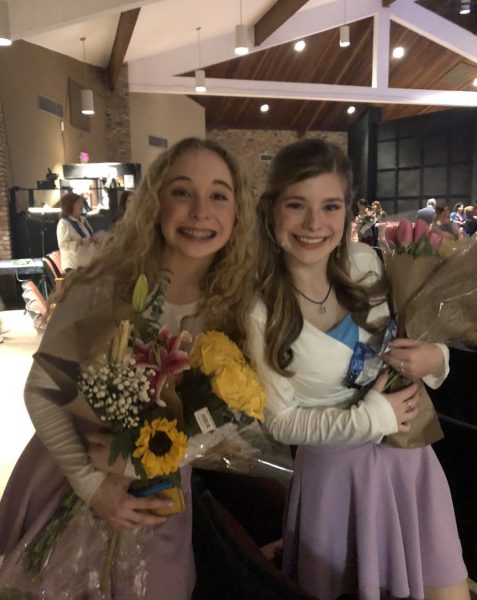
Once auditions are finalized, a cast list will be posted. This is a list of actors assigned to the parts of characters in a show. If you do not see your name for the character you auditioned for, this is not something to be upset over! No matter what role you are assigned, you get to experience working with other actors/actresses and forming a strong bond in the show. For my very first show, which was the 2022 musical, “EMMA! A Pop Musical!,”I was given an ensemble role. Knowing it was my first show, I made sure to perform my role to my fullest! Taking part in the ensemble was great preparation for the possibilities of the roles I could get continuing into high school; it gave me an open mind about my potential to reach higher and try harder for my next audition! As I continued to audition and take part in productions, my ability to perform grew stronger, showing that I had grown since my first audition. Since EMMA!, I gained friendships with so many other talented actors who have impacted me to this day.
Rehearsal
After being cast into a show, your director(s) will schedule a set amount of days each week for the cast to come together to review lines, coordinate blocking (or the movement and placement assigned to actors in a production), rehearse musical pieces and practice acts (or the specific parts of the production). The director(s) may work in or out of order with the play/musical’s acts until the whole production can come together.
When it comes to rehearsal, actors/actresses have to take on a lot of memorization, and notes to improve the character they are portraying. The following are certain rehearsal criteria to improve memorization and performance skills:
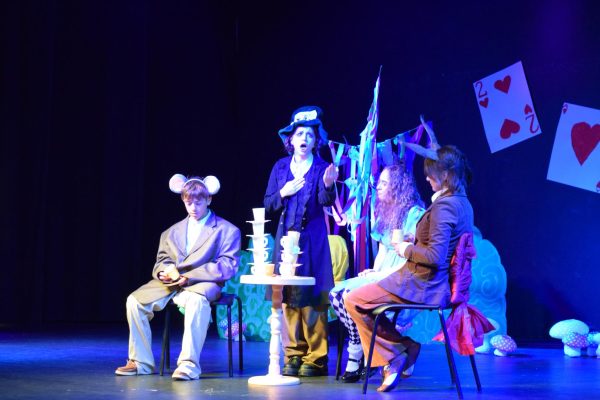
- Dialogue: Depending upon your role in a play/musical, you will be tasked to memorize a certain amount of dialogue. Because you will eventually have to be off-book by a certain date during rehearsals, creating study tools (such as flashcards or coming up with clever memorization skills) is key to nailing your lines. One helpful method I use is to turn your lines into acronyms. For example, let’s say a line you had to memorize is the following line from “Alice in Wonderland: Down the Rabbit Hole”: “Pheasant?!? Oh, that sounds yummy. Is that what we are having for lunch?” Take every word meant to be said in the lines and leave the first letter present: “P?!? O, TSY. ITWWAHFL?” Acronyms are great tools when it comes to lengthier scripts, requiring for certain roles recitation of dissertations or thoughts spoken out loud.
- Sheet Music: Adjacent to your director(s) for the show, if you are in a musical, your musical director(s) will supply sheet music. This script is read according to your vocal part in the show; it stands as a musical guide and map for what pitches, rhythms, or chords to perform.
- Singing and Dancing: Common in musicals, when it comes to singing and dancing, both singing and dancing require you to follow along with the beat of a song or instrumental piece; once you nail tracking the beat of a song, adding in movement and lyrics will enhance this beat further!
- Learn to embody character. It is important that when you are portraying the character you have been chosen for a musical or play, take on the role as though it is your job to bring them to life. Rehearsal gives you the chance to practice making your audience feel as though they are witnessing the authenticity of the character in their seats.
- Act with other actors in the show—during practice and outside of practice! When you practice acting with the rest of your castmates, not only does this strengthen the character you portray, but interacting with other castmates in character develops strong emotional connections that can be felt by your audience come showtime. Both parties, on stage and in the audience, are engaged in the action/dialogue happening; this is because when you are present in character, you are in full commitment to the script of the show.
Costumes
While they can be creative or similar to the actual character portrayed by the book or on screen, your director(s) will provide a brief outline about certain attire they wish to see presented from you dressed in your role. Your costume is meant to bring your character to life on stage! Sometimes, the director(s) will want you to wear your costume during rehearsal. This is otherwise known as dress rehearsals. The feeling of wearing your character’s outfit helps instill confidence and comfortability out onstage.
Costuming also allows you to develop a sense of movement for the character; whether they flow with grace, scurry in an anxious manner, or assert themselves with dominance, costumes communicate the personality of a character.
Remember to consult with your director(s) if there is a specific accessory or outfit you feel would be appropriate to your role; the more creativity and thought put into a costume, the greater the world-building for that character. For example, for Alice, I wore white bunny earrings (representative of the white rabbit and Alice’s curious task to find the rabbit, escalating into a greater endeavor in the show).
Set Design
Not only does your role in a play/musical need a costume, but a set design helps submerge your character, along with an engaged audience, into the true world your character lives in. Being the most contextual part of a show, the set gives location to the action in a show. The layout of a theatrical set for a play/musical can vary depending on what your director(s) wish to portray. Sometimes, moving parts are required to be adjusted so that the scenery of the set is changed. Other times, the play/musical remains in one fixed location with props (movable/portable objects certain characters are required to perform with) moved to different places.
Tech Week
Tech week, short for technical week or production week, can be the most arduous process of being in a show. Since it occurs within the actual theater usually lasting about one to two weeks, the director(s) have to adjust the lighting settings of the theater, put up parts of the set design, organize scene changes, instruct the backstage crew when scenes changes happen, clarify entrances and exits for actors, give notes after each run of the show, and rehearse the order for curtain call (when every actor/actress gives their bows).
One pro tip to remember is that you must know the layout of the theater you are performing in; otherwise, you could get lost and forget your cues. This is because when you go on or off stage, it will remain pitch dark and kept quiet; this is why during tech week, being exceptionally prepared for showtime is your priority!
The best part about tech week is seeing flyers put up for your show; this lets your community know when and at what theater the show takes place, helping raise awareness for your show. Since word of mouth spreads fast, the more people that know about your show, the more people will want to see it!
S H O W T I M E!
The bottom of this rabbit hole is finally approaching…
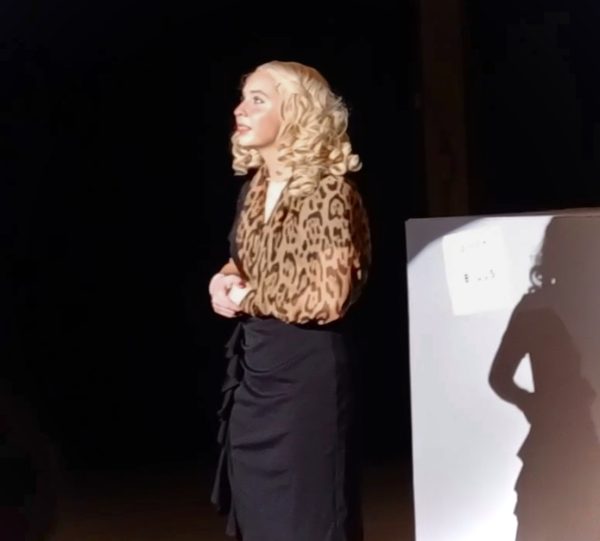
The opening show jitters catch up to you and your palms begin to sweat. On top of that, you feel a bit shaky–but this feeling isn’t anxiety; while you may feel a sense of dread going out onstage for the first time, it is simply pre-show excitement that is bottled inside of you!
I felt exceptionally anxious for my first lead when I played Audrey in Little Shop of Horrors for St. Paul’s 2023 spring musical. As soon as I got on stage for my cue, the jitters began to fade away. I embraced my role and did it not just for myself, but for my audience; I wanted to be someone the audience could emotionally connect to.
Once I completed Alice, I began to lose the intense jittery feelings I used to get; I knew that I was capable enough to bring the show to life, which is why I was entrusted to play Alice! Opening night not only hypes up the cast, but it gives the cast a first glance at all the work that was truly put into a show to make it happen. And the award? Self-accomplishment, of course, high hopes for the next audience and flowers.
The Final Curtain Call…
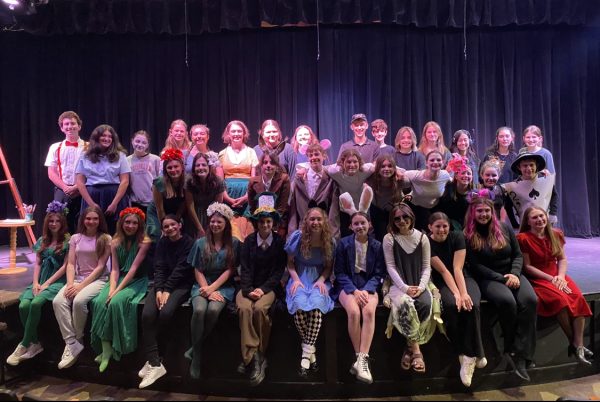
With a thud, you hit the bottom of the rabbit hole. It’s closing night—your last night to put on a show and “break a leg” in character. Because closing is the most emotional night for performers, directors will typically honor their cast before or after the last show. One special way the Benedictine players do this is the St. Scholastica and Benedictine medals; both medals are awarded to a cast member for her outstanding effort in a vote from the cast. I was honored to receive the St. Scholastica medal for Alice and was sure welled up in tears! After closing, the cast usually takes down the set and throws a cast party. This is so the cast can continue the tradition of signing show posters and bonding for one last time.
their cast before or after the last show. One special way the Benedictine players do this is the St. Scholastica and Benedictine medals; both medals are awarded to a cast member for her outstanding effort in a vote from the cast. I was honored to receive the St. Scholastica medal for Alice and was sure welled up in tears! After closing, the cast usually takes down the set and throws a cast party. This is so the cast can continue the tradition of signing show posters and bonding for one last time.
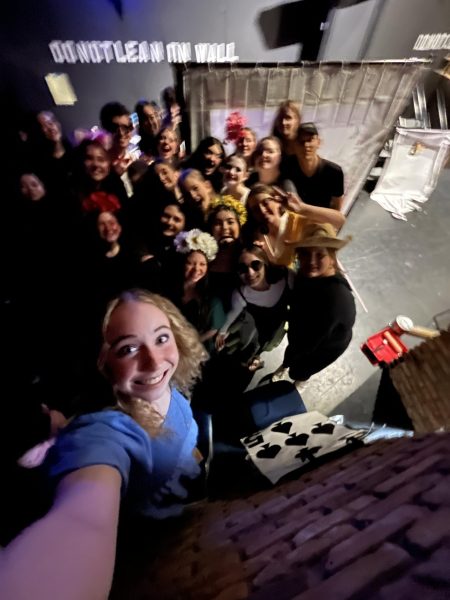
That’s a wrap! Remember: to be an actor or actress, it takes heart, creativity, effort, energy and a positive mindset to know that you have power to bring on the life-like energy of a production. Never cease to try out for a production when the opportunity arrives – the experiences you make will build on your strengths and your personality.
After three years of theater in high school, I can say how grateful I am for having participated in so many shows. It’s been a dream come true for my younger self, and I cannot wait to see what is in store for my senior year. After every curtain call, every bow, every bouquet, every tear, and every hug, the theater has shown me my God-given potential, and it can show you as well.
God bless, and thank you for reading!


